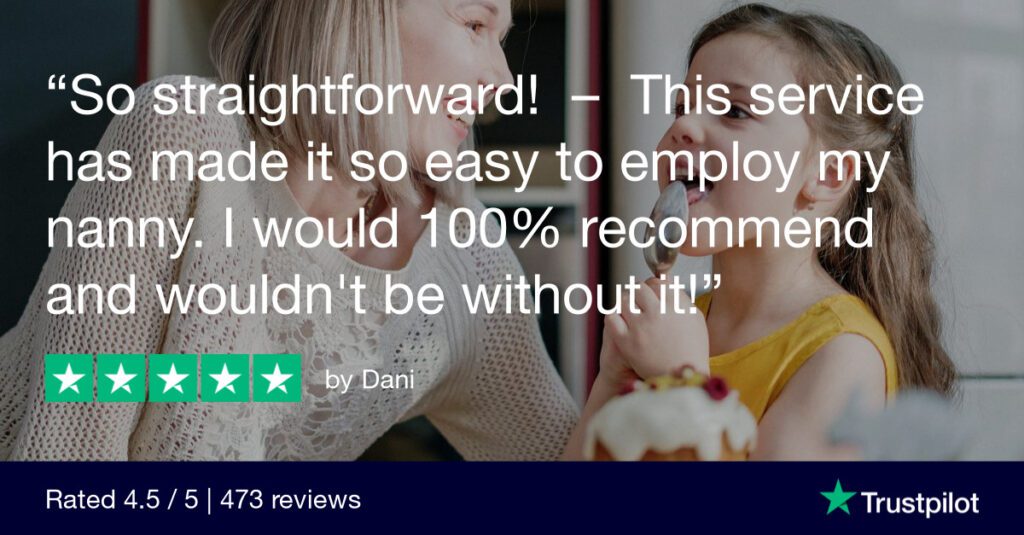
Top 5 FAQs about self-employed nannies

Can a nanny be self-employed? We’re often asked this at Nannytax but the answer isn’t straightforward. Self-employment as a nanny be complicated, particularly when it comes to declaring tax, who becomes responsible with missed payments, and establishing rights if there is a disagreement.
In some cases HMRC will grant a nanny’s self-employment status but there are still risks that involve both the employer and the nanny, which must be carefully considered. Below we have answered 5 FAQs to help cover this tricky topic.
What is the difference between employed and self-employed?
Someone who is ‘employed’ can be told at any time what to do and where to carry out their work. The employee is paid by the hour, week, or month and can also be paid overtime and bonuses.
An individual considered ‘self-employed’ can agree to do a job for a fixed price regardless of how long the job may take. They may regularly work for a number of people – deciding what to do and where to provide their services.
A self-employed nanny is much less common as their role takes place in the employer’s home and is tailored to suit an individual family’s needs. In comparison, a registered childminder is self-employed, works within their own home looking after several children at one time, setting their own fees and terms and conditions.
In what circumstances can a nanny be self-employed?
It’s often assumed that if a nanny is working for more than one family, then the nanny can be self-employed however this is not the case.
In some circumstances HMRC do grant nannies self-employed status, if for example, the nanny works in a series of temporary positions on short-term contracts.
A nanny might be self-employed if they work for three or more families at the same time but in this case they would have to register with Ofsted as a Childminder. The nanny should always contact HMRC directly for approval if they wish to go down the self-employment route.
What are the risks of hiring a self-employed nanny?
If errors arise with declaring the correct tax, it is the family who will be liable and subject to heavy fines from HMRC, paying any tax and NI that hasn’t been reported as well as penalties on top of this.
Each new family should complete the HMRC Employment Status Indicator to decide whether the nanny should be their employee or if they can be self-employed for the job.
If an employer chooses to take on a self-employed nanny, they will need to gain written confirmation of this status from HMRC to cover themselves in case of investigation further down the line.
What are the risks of self-employment for nannies?
Nannies should be made aware that being self-employed involves major disadvantages – a self-employed nanny will not be entitled to employment rights such as holiday, sick pay and maternity pay. The family can also easily terminate the employment without the nanny having any protection or recourse to the courts.
What if a nanny was previously self-employed?
The transfer of a self-employed status between jobs is not automatic and the family is responsible for requesting written confirmation of the nanny’s self-employment status from HMRC. If it later comes to light that the nanny is not self-employed, it’s the employer not the nanny who will be committing a criminal offence and pursued for unpaid taxes.
*Nannytax disclaims all liability if you decide to employ your nanny on a self-employed basis. In each case we strongly recommend seeking professional guidance and advice from HMRC who will assess each situation individually.
Discover our Award-winning Nanny Payroll & HR Services
Have peace of mind when employing your nanny
Looking to employ a nanny but worried about your legal obligations and the admin of payroll and contracts? We can help! Our award-winning services include contracts, payslips, HR support as well as add-on services to cover insurance and pensions. We’re here to make employing your nanny straight forward and hassle free. Discover our services below or give our team a call on 020 3137 4401, we’re open 7 days a week.




